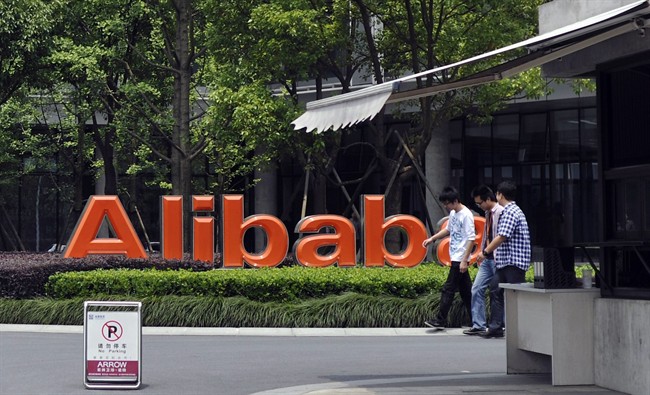BEIJING – China’s largest Internet retailer rang up more than $9 billion during the country’s biggest online shopping holiday, smashing last year’s figure to set a record for a single day of sales.

Analysts said the “Singles Day” figures from e-commerce giant Alibaba show a continuing shift to online shopping over brick-and-mortar stores at a time of slowing economic growth in China.
Singles Day was invented by Chinese college students in the 1990s as an anti-Valentine’s Day when people could buy something for themselves. It was set for Nov. 11 because of the date’s four “ones.”
But Hangzhou-based Alibaba Group, which is known for its retail sites Taobao and Tmall.com, turned it into a day of online shopping for all with bargain deals. Other Chinese online retailers also have followed suit.
The record sales this year are “more indicative of changes in consumer habits rather than a bellwether of China’s overall economy,” said Derek Xin, a Beijing-based retail analyst at Hisend Research.
China’s economy, the world’s second largest, grew 7.3 per cent last quarter, the slowest pace in five years.
In 2012, Alibaba posted sales totalling $3 billion on the Singles Day, surpassing Cyber Monday in the United States. Last year’s total was $5.71 billion. Alibaba Group announced this year’s record sales of 57.1 billion yuan ($9.32 billion) for Tuesday shortly after midnight.
Including other online retailers such as JD.com, total sales Tuesday were an estimated 67 billion yuan, said Jiang Jianlin, senior market analyst at IDC China.
He said the Internet has been a particular draw for the spending power of people in China’s second- and third-tier cities that aren’t well serviced by traditional retailers.
Online shopping has kept retail sales robust despite the slowdown in the country’s economy, said Liu Yuanchun, professor of economics at Renmin University in Beijing.
“It has changed the commercial ecology and drastically lowered costs,” Liu said. “Online shopping will continue to grow at fast speeds and could boost China’s future economy.”
—
AP researcher Yu Bing contributed to this report.

Comments